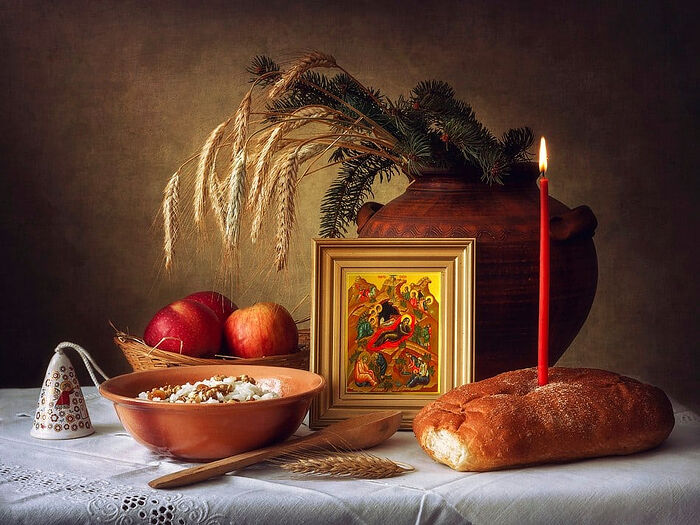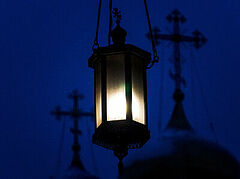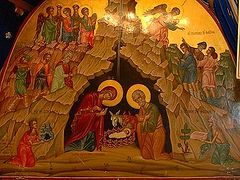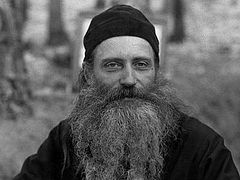The Nativity fast is the final extended fast of the year. It begins on November 15/28 and continues to December 25/January 7; it is forty days long and is therefore called in the Church rubrics, Forty Days (like Great Lent), or the Lesser Forty Days.
The Nativity fast was established so that we would prepare ourselves for day of Christ’s Nativity, purifying ourselves by repentance, prayer, and fasting, so that with a pure heart, soul, and body we might reverently greet the Son of God Who has appeared to the world.
The gastronomical content of the fast is not a goal but only a means for a correct spiritual life, based upon prayer and the sacraments of Confession and Communion. A fast without prayer is no more than a diet.
The establishment of the Nativity fast, like other extended fasts, goes back to ancient times of Christianity. Already by the fourth century, Sts. Ambrose of Milan, Filastrius, and Blessed Augustine mention the Nativity fast in their works. In the fifth century, St. Leo the Great wrote about the antiquity of the Nativity fast: “As the Lord has generously bestowed upon us the fruits of the earth, so must we be generous to the poor during this fast.”
Because the eve of the fast falls on the commemoration day of Apostle Phillip (November 14/27), this fast has often been called the Phillip’s fast (which somewhat distorts the meaning of the fast as preparation for the day of Christmas).
The rule of taking food during the fast shown in Church calendars relates to the monastery rule—this is the ideal norm. Laypeople can receive a blessing from their priest to relax the fast, depending on specific life and health conditions.
Prayer is good with fasting and alms more than to lay up treasures of gold (Tob. 12:8)
Come to earth is Christ, the source of love and life. He has come to save us, to redeem our sins, to enlighten us with the light of the Gospel; He has come to make peace between man and God the Father, to deliver people from eternal death and show the path to salvation, to the Kingdom of Heaven…
This is a joyous event, and therefore the fast is joyful and not strict—during this fast, when a polyeleos service is held in church, we are blessed to eat fish.
The soul of a person who fasts is like a soaring bird—it freely rises to the Lord. But the soul of a person who does not fast is like a bird with broken wings; it would like to fly upwards but it can’t, because it lives on earth and has become the frequent catch of predators—the evil spirits.
When someone fasts for the Lord’s sake (that is, who keeps the fasts blessed by the Church, and not simply goes hungry), his soul becomes calm and peaceful; and if during bodily fasting a person leads a pure life and prays, he feels the Lord near him and is steadfastly sure that the Lord exists.
From: Azbuka.ru




